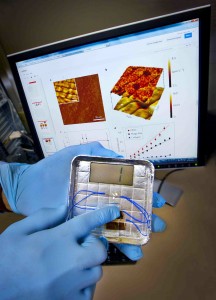Worldwide, three of every four jobs depend on water, whether it’s used for farming, industry, fisheries or forestry, according to United Nations World Water Development Report 2016.
The water industry is already huge, but most of it is involved in basic activities like pumping water to homes and treating wastewater. While water recycling, nontoxic water treatment, and advanced irrigation systems are becoming more common, there’s an enormous need for innovation on sustainable water technologies.
Massachusetts is home to several cleantech incubators, and they are all seeing a spike in applications from water start-ups.
In response, Cleantech Open Northeast launched CTO-H2O, noting that about a third of applicants are entreprenuers trying to commericialize water technologies.
"As a water-innovation consultant and judge for Cleantech Open Northeast, I am excited and amazed at the increased volume of innovative water technologies and solutions applying to our Northeast regional accelerator incubator and accelerator programs," says Marcus Oliver Gay, a water-innovation consultant and member of the New England Water Innovation Network.
Greentown Labs is also expanding its mission to create a home for the world’s most disruptive water startups.
"With global water use skyrocketing and availability of freshwater declining, the planet is moving closer towards an inflection point that will be challenging to return from. With this resource challenge comes an immense opportunity for water entrepreneurship, innovation, and leadership," they say.
A new cleantech incubator, Cascadia CleanTech Accelerator, just launched to assist entrepreneurs across the Pacific Northwest.
Last year, the Department of Energy (DOE) launched the US Clean Energy Incubator Network to coordinate and facilitate the work of cleantech incubators across the country. There are 12 clean energy incubators in New England alone.
Lab-Corps – which helps researchers at DOE’s national labs get their products to market – is in the midst of a 7-week entrepreneurial bootcamp.
14 teams of researchers from seven national labs are participating to get help on commercializing promising technologies in energy efficiency, renewables and sustainable transportation.
Lawrence Berkeley National Lab is the first to harness a virus to generate electricity:

